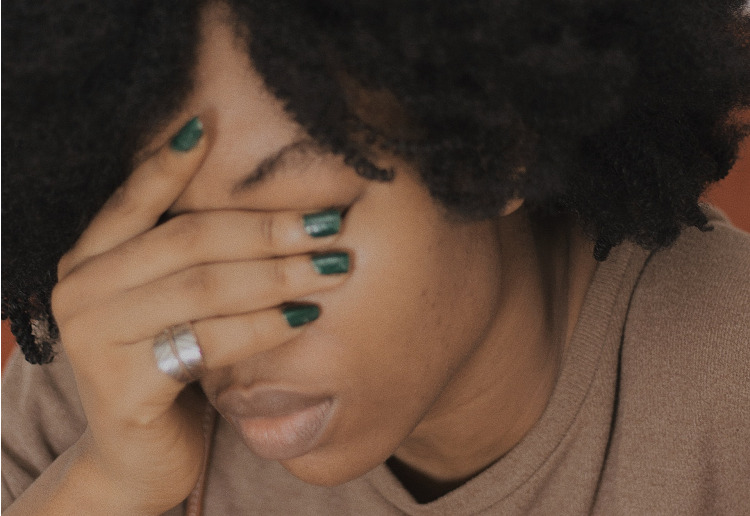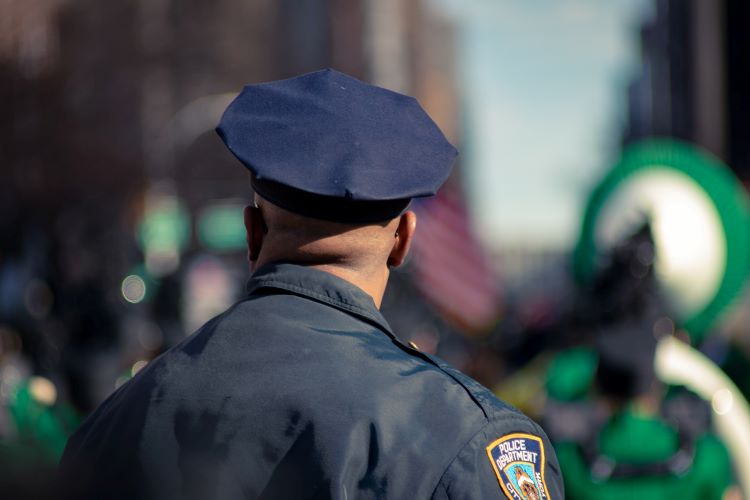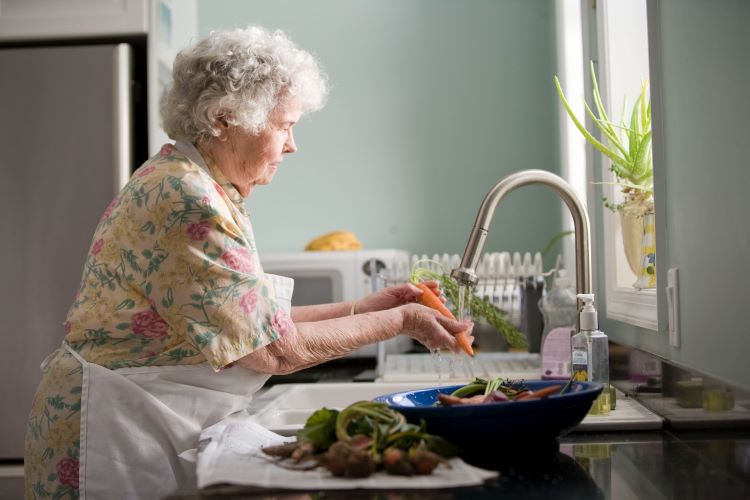The Office for National Statistics’ most recent report into drug misuse and alcohol misuse in England and Wales estimated that 1 in 11 adults aged 16 to 59 had taken a drug in the year ending March 2020.
More than 4,561 deaths by drug poisoning were also registered in that same time frame.
Moving on to alcohol, the government also reported that there were 275,896 adults in contact with drug and alcohol services between April 2020 and March 2021.
And that’s not even considering the number of people who haven’t reached out for help.
A professionally supported drug & alcohol rehabilitation centre in Chelmsford will be the best way to recover from alcohol or drug addiction.
At Rehab 4 Addiction, we have more information on the rehab process, including specific types of treatment, costs and how to know if you have an alcohol or drug addiction in the first place.
We can help you find your ideal drug and alcohol rehab & treatment opportunity for a wide range of addictions, including:
Get the support you need from a drug and alcohol rehab in Chelmsford by calling our expert team on 0800 140 4690

Addiction has been named a ‘chronic relapsing disorder’, which means that relapse (falling back into using the addictive substance or behaviour) is a common part of the illness.
Mental health problems, exposure, peer pressure and genetics are all early indicators that you have a higher chance of developing an addiction.
The 4 Cs of alcohol and drug addiction are:
Physical addiction:
Behavioural addictions:

Recovery is absolutely possible, and starts with building a healthy mind that is strong enough to begin a new life sober.
Self-acceptance is the first step towards change.
Releasing guilt and shame and forgiving yourself for your past is essential to recovery.
Alcohol and drug addiction counselling will be available at every step of your treatment opportunity to help you achieve precisely this.
The 5 rules of recovery accepted among addiction specialists are:

The severity of your alcohol or drug addiction will influence how long you take to recover.
Although many consider themselves to be in recovery forever, most people feel a steady sobriety within six months to five years.
 Intervention seeks to understand whether a person has come to terms with their alcohol or drug addiction, and if they want to recover.
Intervention seeks to understand whether a person has come to terms with their alcohol or drug addiction, and if they want to recover.
Usually, you’ll follow the 4 As:
Unfortunately, an addiction treatment programme will only work if the person wants to recover.
If you can’t get through to someone struggling with addiction, an intervention might be your best option.
Interventions give an outside perspective, allowing the person to truly see the impact of their addiction.
Here we’re going to look at two different approaches to intervention: the traditional approach and the CRAFT approach.
Both employ the services of a professional interventionist – but one is more confrontational and about showing the person an outside perspective, whilst the other is more about guiding them in the right direction.
In a traditional intervention, friends and family of the affected person will gather in a direct conversation.
It doesn’t happen in every case, but letters are commonly read aloud, detailing how the addiction has affected the person reading and how they’d like things to change moving forward.
Then there’s the CRAFT approach.
CRAFT stands for Community Reinforcement and Family Training.
Participants will learn to positively communicate with the addict, while also reinforcing their positive progress and discouraging negative behaviours.
Both of these can of course happen together.
Overall, it’s important to carefully plan out any intervention, from the style you’re using to the people involved and what you want to say.
Make sure that your loved one gets the help they need from drug and alcohol rehab Chelmsford by calling our team today on 0800 140 4690

While looking for an addiction treatment programme, you might be wondering if you even have an addiction in the first place.
The first thing to know is that there’s a difference between use, abuse and addiction.
Use simply means using drugs or alcohol on any level.
Abuse means using to a harmful extent, both for yourself and for others.
Addiction is a disease or disorder where you can’t stop yourself from abusing drugs or alcohol.
If you can’t function without drugs or alcohol, if you’re damaging your relationships, your career or anything else important for the sake of your use, or if you can’t stop in spite of the danger, you should seek out help.
On a more technical level, several criteria are also used by professionals to measure addiction.
One of these is the CAGE questionnaire, designed to be easy to remember with just four simple questions about alcoholism.
These are:
Have you ever felt like you should Cut down on your drinking?
Have people Annoyed you by criticising your drinking?
Have you ever felt Guilty about your drinking?
Have you ever had a drink first thing in the morning as an Eye-opener?
Each of these questions covers an important sign of alcohol addiction.
Think you might need the help of an alcohol and drug rehab centre in Chelmsford? Give our team a call today on 0800 140 4690

The cost of an alcohol and drug rehab programme in Chelmsford can vary based on several factors.
This includes where you choose to go for your addiction treatment programme, what kind of treatment you go for, how long your treatment opportunity lasts and what kind of room you go for if you choose a residential rehab centre.
Speaking generally, private inpatient rehab typically costs £495 a day, adding up to £14,000 for a 28-day stay.
This could go up or down if you go for a more or less luxurious rehab, or if you choose a single or multiple occupancy room.
To get a more personalised estimation of how much your time at drug and alcohol rehab Chelmsford will cost, call us today on 0800 140 4690

The simple answer to this is yes, but it can be a little bit complicated.
Addiction can be included in your health insurance plan, but this can make it more expensive.
Many alcohol and drug rehab clinics will work with private health insurance providers to create a payment plan that provides effective coverage for the patient in question.
It can also be covered under employee health insurance – but this does mean that you’ll need to tell your employer about your addiction.
Although this is advised, not everyone will be comfortable with this, so employee health insurance might not be an option for everyone.
Overall, this is something that you should definitely research in as much detail as you can, taking your specific situation into account.
For help using health insurance to access an alcohol and drug rehab programme in Chelmsford, call our team today on 0800 140 4690

This is another yes with complications.
An alcohol and drug rehab centre in Chelmsford is available on the NHS, but it’s notoriously difficult to get.
This is because the funding that you can get for rehab treatment via the NHS is ring-fenced, meaning that you will need to go before a funding committee to obtain it.
It’s also administered by local councils instead of the NHS, so they’ll have no control over whether or not you get funding.
Free and NHS-run addiction treatment services in Chelmsford include:
Address: 114 Springfield Rd, Chelmsford, CM2 6LF
Telephone: 01245 493 311
Website: http://www.childrenssocietyeast.org.uk/
Address: Mansard House, 107-109 New London Rd, Chelmsford, CM2 0PP
Telephone: 0844 499 1323
Website: http://www.openroad.org.uk/
Address: 32 Moulsham St, Chelmsford, CM2 0HX
Telephone: 01376 316 126
Website: https://www.futuresinmind.org.uk/
Overall, this is a very tricky and lengthy treatment process, which can often be emotionally draining, especially considering you’re already going through addiction.
Some people might be emotionally prepared for this, but others won’t be.
It’s important to figure out which side you fall on before you get started with any of this.
Other organisations that can offer you free addiction services include a local NHS Foundation Trust, Turning Point, We Are With You, National Association for Children of Alcoholics, Change Grow Live and Alateen.
Rehab centres and organisations are advised by the American Society of Addiction Medicine and the National Institute for Health and Care Excellence so you are in safe hands with plenty of person-centered care.
You might be offered sober living houses after you leave a rehab centre to help you keep your sobriety.
For advice and guidance on how to access drug and alcohol rehab in Chelsmford through the NHS, give our team a call on 0800 140 4690

An average alcohol detox takes a minimum of 7 days – but we recommend 28 days to fully focus on your recovery and addiction rehabilitation programme.
Your rehab programme will begin by slowly and safely reducing your intake, while also using specific medication to avoid withdrawal symptoms.
With alcohol, these can include:
Then, once you’re fully sober, we can look into the psychological root causes of your addiction, using therapy and counselling to under the guidance of addiction psychologists and addiction therapists in order to help you overcome it.
Taking Naltrexone after a medical detox can help you remove the association between alcohol and positive feelings by blocking the effects it has on your brain.
For a specific estimation of how long your stay at drug and alcohol rehab Chelmsford will take, call us today on 0800 140 4690
alt=
Both NHS and private treatment centres have their benefits and drawbacks.
NHS drug and alcohol services are available to all and can often be great, but they also won’t be as tailored to you.
You might also have to face long waiting lists, while private rehab will be much faster to access.
Residential private rehab will also give you a more intensive level of treatment, whilst also taking you out of any toxic situations that might have been driving your addiction.

While an inpatient treatment programme happens in a residential space, outpatient treatment happens in the home.
In a lot of cases, outpatient treatment is both more convenient and more comfortable – but inpatient programmes have their benefits too.
As we’ve previously noted, it gives you a chance to get away from an environment that might have been driving your addiction.
And in pretty much every case, it can be good to be able to “reset”, going into a new space to make a fresh start.
It also offers a more intensive level of treatment – although this might not be necessary in all cases.
An outpatient treatment programme might work better for you if you have a less severe addiction, as it will allow you to recover at home.
Make sure you get the right help from an alcohol and drug rehab centre in Chelmsford by calling our team today on 0800 140 4690

Like most other addictions, alcohol comes with its own set of withdrawal symptoms.
Withdrawal symptoms occur at a stage where your body has become reliant on whatever you’re addicted to.
Alcohol dependence can be established using the Alcohol Use Disorders Identification Test, DSM-5 or CAGE questionnaire.
Dependent drinkers will have built up a strong tolerance to alcohol, and experience unpleasant withdrawal symptoms (, alcohol withdrawal symptoms) or alcohol withdrawal syndrome when they stop drinking.
To ensure that the risk of seizures is minimal, our medical team prescribe patients with Chlordiazepoxide, brand name Librium, while they undergo detoxification.
A medically-assisted detox is needed in order to try to prevent the effects of alcohol, including encephalopathy (Wernicke encephalopathy) and delirium tremens.
For this reason, a lot of treatment plans start off with a medical detoxification, where your intake is slowly reduced over a set period of time, while you’re also given medication to curb the worst withdrawal symptoms.
This will then allow you to move on to stages that focus more on healing your mental health, while also minimising the chances of relapse.
In this case, as alcohol is a physical addiction, the withdrawal symptoms you’ll get with it are also physical.
6 hours after your last drink, you may experience:
If you have a more severe case and try to detox without any support, within 12 to 48 hours you may experience seizures and hallucinations.
About 5% of people who withdraw from alcohol also experience delirium tremens within 72 hours.
This can come with severe symptoms like:
For alcohol specifically, we recommend a Librium-based detox over about 10 days to reduce the risk of withdrawal seizures.
This will be followed by a further 3 weeks in rehab, to tackle the root emotional causes of your addiction with therapy and counselling.
Therapy on offer at a drug and alcohol rehab centre includes:
Following this, we’ll also help you with a relapse prevention plan, working to identify your triggers and teach you to cope with them.
We’ll also lay out any lifestyle changes you might need to make, alongside an exact plan for if you do relapse.
Beat your addiction at an alcohol rehab in Chelmsford by contacting our expert team on 0800 140 4690

Are you in control of how much and how often you drink?
How would you feel if you had just one and then stopped?
Have you used alcohol as a form of escape?
Common brain-related conditions caused by excessive alcohol intake include cognitive issues such as dementia and memory problems.
Alcohol can take a toll on school performance among younger users and weakens the immune system, making you more likely to develop viruses and infections.
The most common conditions are:
Type one alcoholism usually happens in adulthood.
You may binge drink, even if this affects you carrying out responsibilities.
You probably go long periods without drink, feel guilty when you do.
You quickly went from mild to severe alcoholism.
Type one alcoholics are most likely to develop liver disease.

You first experienced issues as a teenager, or young adult.
You may engage in anti-social and criminal behaviour, like fighting and getting arrested.
Your alcohol abuse is steady, and moderately severe.
According to advice by the NHS, drinking over 14 units of alcohol a week regularly risks damaging your health.
Alcohol overdose is categorised by symptoms like being sick, confusion, falling unconscious, and a low body temperature.
Extreme overdoses can cause seizures, slow heart rate and reactions, struggling to breathe, brain damage, and death.
Your calcium, magnesium, iron, and zinc levels will be depleted by alcohol, so you may need to take supplements to avoid a nutrient deficiency.
As you age, your body becomes less resilient.
You’re more likely to get into accidents in your later years.
Your immune system will find it hard to recover from alcohol, so you may suffer worse hangovers.

Alcohol takes a toll on the body, and makes it harder for your body to contend with the natural ailments of ageing.
On average, men who are alcoholics live to 47–53 years, and women, 50–58 years.
The 4 Ps represent important areas of life.
If there are alcohol issues in your present, past, partner or parents, you could be currently facing issues with alcohol, or at risk.
Individualised support from a residential rehab will give you the best chance of recovery.
Everyone’s situation is different – from your environment to your genetics, so everyone’s recovery will be unique too.
If you have been drinking regularly, you need to be careful, as it may be dangerous to stop abruptly.
Admitting you need help is the first stage of recovery.

However, if you’ve developed a dependence on alcohol, please speak to your GP first.
In some cases, you’ll need to cut down first in order for your brain and body to adjust.
If you’re entering addiciton treatment facilities, your care plan will tailor your detoxification to your needs, with medication prescribed as necessary.
Relapsing is a part of addiction, with the average alcohol relapse rate in the UK being approximately 40 – 60%.
This is particularly dangerous when recoverees initially leave addiction treatment facilities, as a reintroduction to outside life will come with the same triggers and temptations that can addiction in the first place.
Often people take two or fewer attempts to quit.
Just 23.80% who received cognitive behavioural therapy (CBT) went on to relapse in a recent study.
83.87% with alcoholism specifically recovered fully.
Yes, there are a few medications that are often prescribed for alcoholism.
These range from medications that limit withdrawal symptoms to those that suppress the urge to drink.
Acamprosate stops alcohol cravings by treating your body’s chemical balance.
Naltrexone can help you keep cravings at bay after you’ve detoxed.
The three pillars of recovery are a tool to help you remember to keep these aspects of your life in good health.
This will make recovery easier, and you’ll have a smoother time maintaining your sobriety.

As cocaine isn’t physically addictive, a treatment programme for it will have more of a mental health focus.
You will receive a psychiatric assessment by a psychiatrist when you arrive – alongside a full addiction assessment – who will work out if you need psychiatric treatment during your stay.
Its withdrawal symptoms are mostly psychological and include:
While these can be unpleasant, they won’t harm you in the same way that other withdrawal symptoms would and they definitely won’t kill you.
As cocaine causes a euphoric high quickly followed by a crash, it encourages repeat uses and is therefore highly addictive.
It’s also very easy to build up a tolerance to it.
Like many other psychologically addictive drugs, cocaine affects your brain’s pleasure centres, leading to the above withdrawal symptoms if your intake suddenly drops.
If you’d like to know more about cocaine rehab specifically, we have more information here.
Beat your addiction to cocaine with the help of a drug and alcohol rehab centre in Chelmsford – call our team today on 0800 140 4690

Referred to by some as the most deadly substance in the UK, heroin comes with a wide range of physical withdrawal symptoms (heroin withdrawal).
As a result, a full medical detoxification is always required at the beginning of a treatment programme for heroin.
Symptoms will usually start 6 to 12 hours after your last dose, will peak at 1 to 3 days and will subside after about a week.
But this can of course vary based on the treatment you go through, as well as the severity of your addiction.
Just a few of the best-known symptoms associated with heroin withdrawal are:
Heroin addiction often comes from addiction to opioid painkillers, as they’re in the same category.
Like other forms of rehab, once you’re through an initial medical detox, we’ll then be able to move on to mental health treatments that tackle the root emotional causes of your addiction.
Mental health conditions might include:
More information about heroin detoxes is available here.
You can also get treatment or advice for any other effects of heroin, such as hepatitis.
Beat your addiction to heroin with the help of a drug rehab centre in Chelmsford – call our team today on 0800 140 4690

Cannabis is considered by many to be a tamer drug, particularly as it doesn’t produce severe physical withdrawal symptoms.
However, an addiction to drugs like cannabis can still be dangerous.
And some research has suggested that about 30% of cannabis users have some kind of problem.
If you feel like you can’t function without cannabis, you should seek out help.
Some withdrawal symptoms associated with cannabis use are:
Long-term effects of cannabis addiction can include:
More information about cannabis rehab facilities in particular is available here.
Beat your addiction to cannabis with the help of a drug and alcohol rehab centre in Chelmsford – call our team today on 0800 140 4690

As rehab has such a strong focus on mental health, a wide variety of therapies are available through drug and alcohol rehab Chelmsford.
This includes:
Cognitive Behavioural Therapy – Many people with addiction (and other emotional problems) will find themselves spiralling when faced with negative emotions or situations.
CBT aims to eliminate these toxic thinking and behaviour patterns, as it teaches you to break down your problems until they’re in relatively manageable chunks.
It also uses real-world scenarios to help develop your problem-solving skills.
Dialectical Behavioural Therapy – DBT uses a similar model to CBT, but here the focus is specifically on managing your emotions.
Brief Interventions – During drug and alcohol rehab in Chelmsford, you’ll have a full professional team supporting your recovery.
In brief interventions, someone from this team will catch up with you to see how you’re doing in your recovery.
Motivational Interviewing – Motivational interviewing employs a series of non-judgmental questions to encourage you to change.
From a practitioners perspective, the 5 main principles of motivational interviewing are:
Holistic and Alternative Therapies – Holistic therapies focus on healing your whole self, often through a variety of enjoyable activities undertaken at treatment centres.
Therapies that fall under this umbrella include art therapy, music therapy, mindfulness, yoga, gardening, equine therapy and outdoor therapy.
Group Therapy – Group therapy will allow you to share your recovery journey, which can make a lot of people feel less alone.
One therapist will work with your group, with the effect being similar to that of a mutual support group.

Individual Therapy – Individual therapy, on the other hand, offers a more private experience.
Here, you’ll work through any and all emotional issues with a therapist on a one to one level.
Family Therapy – Addiction doesn’t just hurt the person suffering from it.
If you feel like you need therapy as a family, this is often on offer as part of a treatment programme too.
Codependency Treatment – Codependency is an unhealthy relationship structure where one person’s needs are put over another’s.
This is sometimes called relationship addiction, as people who suffer from it will often form relationships that are emotionally destructive and one-sided.
Treatment for this is also available through drug and alcohol rehab facilities in Chelmsford.
Twelve-Step Facilitation Therapy (TSF) – As its name would indicate, twelve-step facilitation therapy uses the twelve steps of alcoholics anonymous to outline your recovery.
These are:
This famous 12 step recovery model has helped millions of people across the world overcome their addictions and stay sober for good.
The NHS does provide some therapy services, but usually there’s a long waiting list before you can receive the support.
To access any of these superb treatments at drug and alcohol rehab Chelmsford, call our team today on 0800 140 4690

As we’ve already established, addiction nearly always has underlying psychiatric disorders behind it.
Drug and alcohol rehabs in Chelmsford directly target these root causes, which can include:
The conditions most often faced by people in addiction are anti-social personality disorder and borderline personality disorder.
If we just cure you physically and don’t examine these underlying causes, they’ll continue getting worse, causing you more emotional distress and potentially leading to relapse.
As a result, it’s very important that we take every bit of context into account when planning out your treatment.
The mental health support you receive at any of our partner rehab facilities will be just as effective as that received at a dedicated mental health treatment hospital.
You can find further mental health support at Rethink Mental Illness, Papyrus, Young Minds, Samaritans and Mind UK.
To find out for yourself how a drug and alcohol rehab in Chelmsford will support your mental health, call us today on 0800 140 4690

At the aftercare stage, the main focus of drug and alcohol rehab Chelmsford is preventing relapse.
And one of the main ways we do this is through an effective relapse prevention plan.
To work to its full effect, this plan should include many important elements, including:
Triggers and cravings – We’ll identify any potential triggers, and will help you to recognise and handle them.
Lifestyle changes – We’ll also work with you to lay out any lifestyle changes that might need to be made.
A plan for relapse – A plan for if the worst does happen is also very important.
This should include a step by step guide as to what should happen, as well as contact details of anyone you should get in touch with.

Although it varies based on the kind of addiction you have, drug and alcohol rehab in Chelmsford generally happens in three stages: detoxification, rehabilitation and aftercare.
The last stage is a transitional one, where you’ll continue to receive support while you adjust to post-rehab life.
A few treatments available to you at this stage will be:
Narcotics Anonymous (NA), Alcoholics Anonymous (AA), Cocaine Anonymous (CA), etc. – Recovery support groups like these allow you to recover amongst people who can truly understand what you’re going through.
It will also allow you to share your story, while also hearing the stories of others, which can be very freeing.
SMART Recovery – SMART stands for Self-Management And Recovery Training.
As you might have already guessed, SMART Recovery is all about self-sufficiency.
It teaches participants to manage their own urges and cravings, regulate their own emotions and ultimately steer their own recovery.
This is of course great for preventing relapse – but its independent style might not be for everyone.
Al-Anon Family Group Meetings – Recovery support groups aren’t just available for the addiction sufferer themselves.
If you’ve been impacted by the addiction of a family member, mutual support groups like AI-Anon could help you to heal.
Home detox – If you have a less severe addiction, where your withdrawal symptoms aren’t as drastic and you’re more able to stay away from temptation, an at-home detox might be a good option.
Outpatient Treatment Via A Local Team– Going to a residential facility isn’t your only option.
If you’d feel more comfortable staying at home, an outpatient treatment programme via a local drug and alcohol team in Chelmsford is also an option.
A rehab centre team can and will support you in whatever recovery space you feel at your best in.
And you can of course get this kind of support and treatment after completing residential rehab too.
The key to a successful recovery is summed up with ‘seven Rs’ – Renounce, Reinvent, Restructure, Rebuild, Rename, Rebrand and Reset.

For information on the rehab facilities and treatment options available in Chelmsford, contact us today on 0800 140 4690.
It might only take a few minutes, but this call could change your life.
We help to ensure that your addiction rehabilitation programme is tailored to your needs for maximum effectiveness.
Each and every caller undergoes a full addiction assessment to ensure that any recommendation we make is tailored to your unique rehab needs.
All of the rehabs we recommend are regulated by the Care Quality Commission (England and Wales) or the Care Inspectorate (Scotland).
We also offer rehab admission to anyone suffering from addiction across Essex, including in Colchester, Basildon, Chelmsford, Harlow, Chigwell, Brentwood, Braintree, Rochford, Harlow, Malden, Clacton-on-Sea, Canvey Island, Billericay, Rayleigh, Loughton, Witham, Walton Abbey, Harwich, Saffron Walden and many others
 Substance addiction, also referred to as Substance Use Disorder (SUD), is a chronic and relapsing brain disease that affects both physical and psychological functioning. It develops when repeated exposure to drugs or alcohol alters brain chemistry, particularly the reward and motivation systems, leading to compulsive substance use despite harmful c .... Read More
Substance addiction, also referred to as Substance Use Disorder (SUD), is a chronic and relapsing brain disease that affects both physical and psychological functioning. It develops when repeated exposure to drugs or alcohol alters brain chemistry, particularly the reward and motivation systems, leading to compulsive substance use despite harmful c .... Read More
 Addiction recovery is a deeply personal and individual journey. The decision to seek help for your drug or alcohol addiction and rebuild your life generally happens quietly, sometimes after years of struggle. But while recovery starts at an individual level, it’s rarely successful in isolation. Behind most long-term recovery stories is a time whe .... Read More
Addiction recovery is a deeply personal and individual journey. The decision to seek help for your drug or alcohol addiction and rebuild your life generally happens quietly, sometimes after years of struggle. But while recovery starts at an individual level, it’s rarely successful in isolation. Behind most long-term recovery stories is a time whe .... Read More